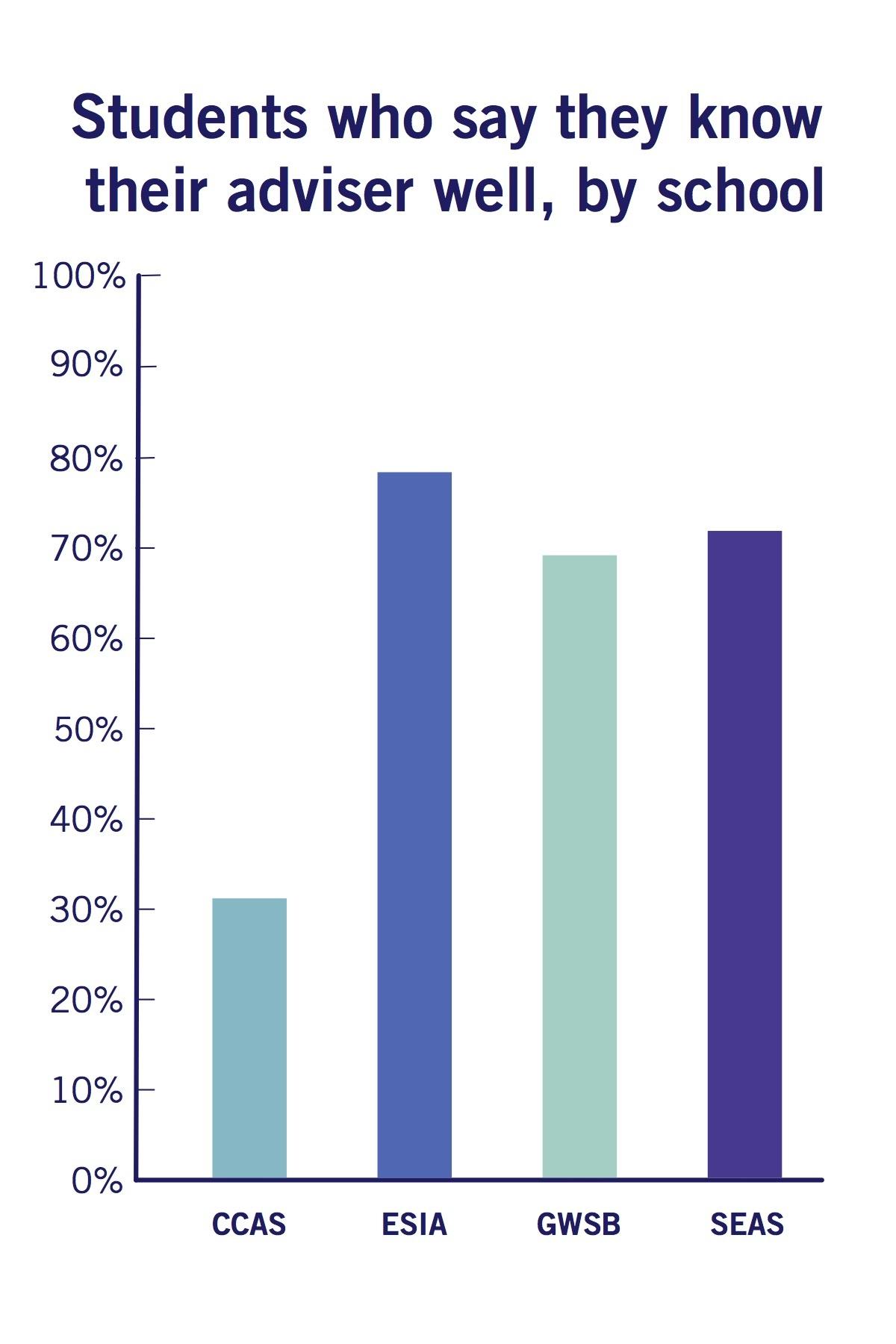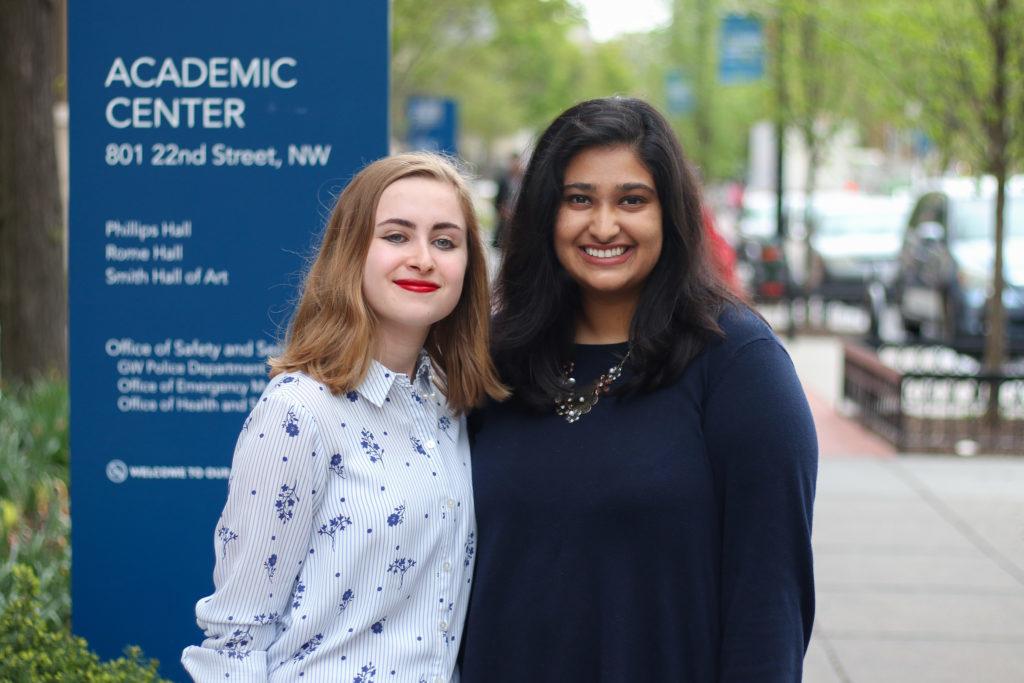Updated: April 26, 2018 at 2:52 a.m.
Student Association leaders are looking to improve the ways students interact with their academic advisers.

Emily Recko | Graphics Editor
Source: SA academic advising report
In a 56-page report released Monday, SA leaders summarized major findings from an academic advising survey sent to students in February. Student leaders said the more than 300 survey responses show mandated meetings with advisers often produce the best advising relationships, while students who don’t develop connections with their advisers often can’t rely on them to provide answers to their questions.
SA leaders said they will present the report to advisers in the Columbian College of Arts and Sciences – the University’s largest school – this week to gauge how advising services can be improved.
Nicole Cennamo – the SA’s assistant vice president for academic affairs, who compiled the report with Karisa Anand, the SA’s vice president for academic affairs – said academic advising has been an issue at GW for years and the report will help convey that concern with evidence from student feedback.
“Students have acknowledged the disparities regarding equality, accessibility and personalization of advising services offered between schools,” she said. “Our goal was to help bring these concerns to light so we can move on and help solve them.”
Here’s a glimpse at the report:
The Columbian College of Arts and Sciences
CCAS students are assigned to a group of advisers, called a POD, by last name. The majority of CCAS students never seek academic advising, with 59 percent of students saying they solicit advising help from peers instead, according to the report.
Sydney Nelson, the SA’s executive vice president, who oversaw the project, said the fact that few students seek advising services is concerning because it shows the POD system isn’t allowing students to form personal connections with their advisers.
Since the POD system was implemented in 2015, student have called for updates to the program.
“I think we’re missing the boat in CCAS, where we can really deliberately build relationships and connections between students and their academic adviser, and help propel them throughout their four years at GW,” Nelson said.
The report also found that more than half of students in CCAS said advisers are often unable to answer their questions on scheduling or course requirements – which Nelson said was the most alarming discovery because students know more about their major than the people meant to guide them.
The School of Business
About 92 percent of students in the School of Business said they’ve completed a four-year plan to map out their classes, a relatively high percentage that Nelson attributed to the school’s mandatory First-Year Development Program, a class taught by advisers and upperclassmen that equips students with information about their major and school.
The report also found that while business school students utilize their advisers, more than half of students can’t find an open slot to schedule appointments. But Nelson said the finding is not a weakness because it demonstrates that students are interested in advising services.
At most, she said the business school could expand its advising services to accomodate more students. But high turnover has plagued the advising office recently, as 11 staffers have departed within the past two years.
“When you have students who want to see their academic adviser, that’s a sign you’re doing something well,” she said. “We just now need to think of how to make that more accessible for students.”
The Elliott School of International Affairs
The report found that 98 percent of Elliott School students completed a four-year plan – a finding Nelson said was “remarkable” because it demonstrates that advisers are “deliberately brought and incorporated into the Elliott School experience.”
Nelson said one of the biggest concerns for Elliott School students is that students are not utilizing their peer advisers – one of the first academic resources to freshmen when they arrive on campus. More than 70 percent of Elliott School students said they never use the school’s peer advising program.
“If we’re not using peer advisers, how do we make peer advisers more helpful for students as a viable option?” she said. “How do we open up space for students to come meet their academic advisers?”
The School of Engineering and Applied Sciences
Students generally rated their relationship with advisers at a three out of five. She attributed the finding to the SEAS peer advisory network – dubbed SEASPAN – that pairs every freshman with an upperclassman for academic advice.
But Nelson said despite the set schedule of classes engineering students must take, students still say that they are unable to meet or receive correct information from their advisers, indicating that there is room for academic advising to expand.
“There needs to be a little more intentionality in how we’re asking students to academically plan for their GW experience,” she said. “There’s still room for where we can equip advisers to help students.”
Dani Grace and Johnny Morreale contributed reporting.




